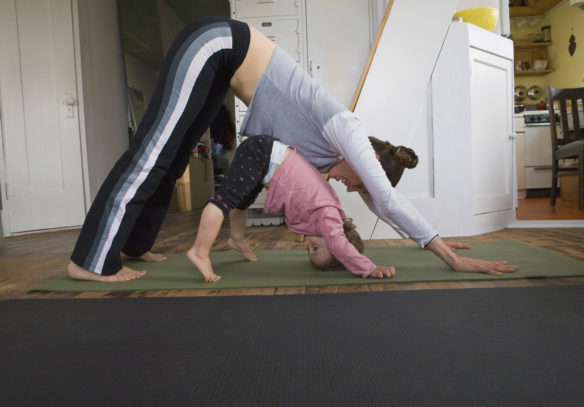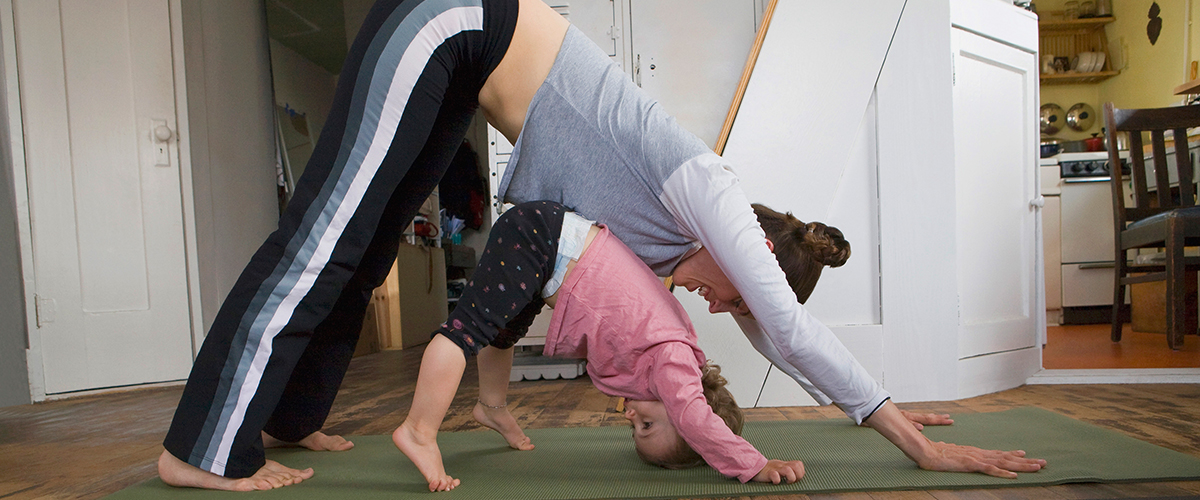
Between commutes, long hours at the office and juggling kids and family, going out for a run or taking a class at the gym may be the furthest thing from your mind. We know it can be hard to just ‘get moving’ sometimes, that’s why we asked Scott Parker, a health expert, #GoRedGetFit trainer, and spokesperson for the American Heart Association to help us understand why getting regular exercise is so important and how we can get (and stay) motivated. Here’s what he had to say:
1. Why is getting regular exercise and ‘moving more’ so important?
A lot of people might think of exercising as a way of losing or managing their weight and while it can certainly help with that, there are so many other important benefits. Staying active reduces stress and tension, boosts your energy and mood, and it helps maintain strong bones. Regular exercise is also important because it helps prevent heart disease and stroke.
2. How much exercise do we really need?
We at the AHA recommend at least 150 minutes per week of moderate exercise or 75 minutes per week of vigorous exercise (or a combination of moderate and vigorous activity) to support overall heart health. Thinks of it as just thirty minutes a day, five times a week. And you don’t have to do it all at once. If you’re pressed for time, you can divide your time into two or three segments of 10 to 15 minutes per day.
3. What ‘counts’ as exercise?
Exercise doesn’t have to mean getting on a treadmill or taking a spin class, although those are great ways of staying fit. Physical activity is anything that makes you move your body and burn calories. Taking a hike with your family or playing a pickup game of basketball counts as exercise too.
It’s good to do a mix of both aerobic and strength workouts. Aerobic exercise – running, swimming, biking, etc. – is good for your heart and more strength-based exercises – lifting weights, yoga, etc. – helps build stamina and flexibility.

4. Any tips for anyone who doesn’t like to exercise and has a hard time staying motivated?
First, find an exercise you enjoy. Maybe you like to dance or if you’re social person, try a group class at your local gym. If you prefer to work out on your own, try running or walking. You have to enjoy what you’re doing or else you probably won’t stick with it.
It’s easier to stay on track if you make exercise a habit and build it into your lifestyle. Working out at the same time each day or coming up with a regular schedule makes it easier to keep it on the calendar. Also, make it easy on yourself. Find a gym near your office or home. If you’re not a morning person, don’t plan on getting up and jumping into a pool or running a few miles before work.
And lastly, don’t be so hard on yourself. If you miss a day (or two) don’t stress – just get back at it. You’ll be back in a routine in no time.
5. What advice do you have for anyone who hasn’t worked out in a long time?
Start out slow. Wherever you’re starting, gradually build up to being active for at least 30 minutes on most or all days of the week (or whatever your doctor recommends). And remember, you don’t have to do it all at once; break it up into 10 to 15 minute increments if you need to.
Don’t limit yourself to think that only “exercise” counts… just look for chances to be more active. Take the stairs at work or park at the far end of the parking lot when grocery shopping. Take walk breaks during your lunch hour or in the evening. And have fun! Find what you enjoy and do it. Add in variety to keep it interesting and listen to music or a podcast to stay motivated.
6. Any tips for keeping the entire family active?
Keeping your kids active is easier if you’re active. Instead of telling them to go out and play, get out there with them. Focus weekend or evening activities around sports or being active outside instead of watching T.V. or playing on the computer. Same goes with your spouse – instead of making the focus of date night around dinner and a movie, consider going for a walk or taking a fitness class together.
One last tip that your kids may not love but you will? Chore cards! Each family member picks a card with a different active task that needs to be done. Vacuuming, walking the dog, and cleaning up the yard are all great ways to keep your family from sitting in front of their screens – and your home will be tidier.
Note: Since everyone’s health history and nutritional needs are so different, please make sure that you talk with your doctor and a registered dietitian to get advice about the diet and exercise plan that‘s right for you.
Note: Since everyone’s health history and nutritional needs are so different, please make sure that you talk with your doctor and a registered dietitian to get advice about the diet and exercise plan that‘s right for you.

